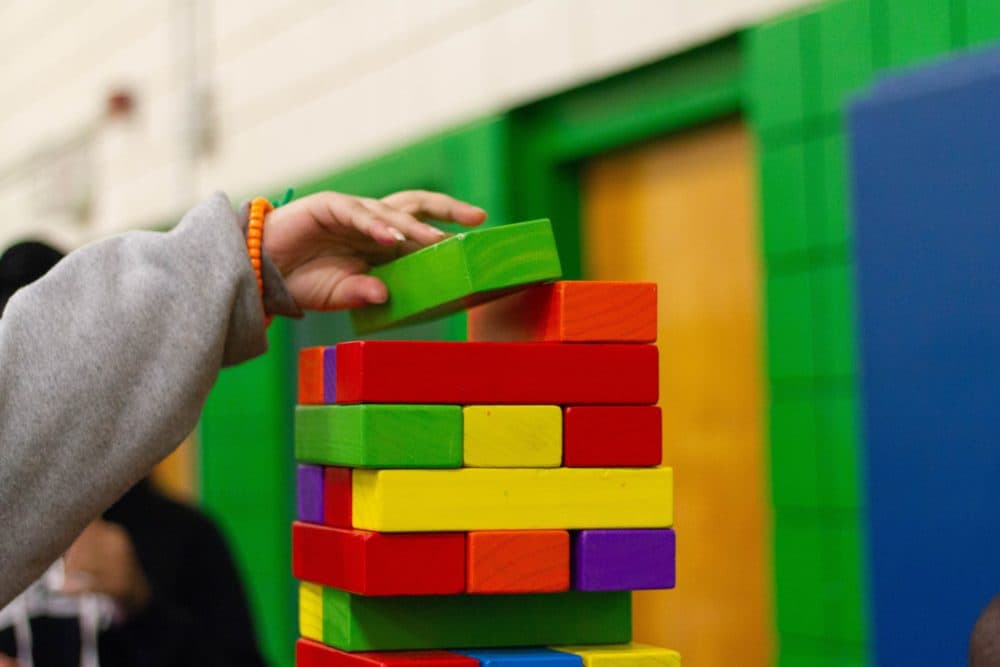Advertisement
Brookline Kindergarten Teachers Criticize Curriculum Shifts

Kindergarten teachers in Brookline are criticizing recent changes in the classroom, saying they're making kids increasingly anxious and lose joy in learning, and may be working against the district's equity goals.
"It is now common to hear their little voices announce to us, 'I don’t know how to read,' 'I hate reading,' 'I hate school,' 'I am not good at anything.' This is our greatest concern," reads a letter signed by a group of 19 current and two former teachers from seven of Brookline's eight elementary schools. They plan to present the letter to the school committee Thursday night.
Teachers and parents say the shift has been gradual over the last several years, moving the classroom from largely open, play-based learning time with more free choice for students to a more rigid, academic and data-driven focus.
As a result, teachers said 5- and 6-year-old students are being asked to sit for longer periods of instruction, rather than moving around and engaging with learning.
When Nicole Chasse began teaching kindergarten in Brookline 10 years ago, she said kids had two 30-minute recess periods, and the classroom time was a mix of games and social-emotional work tied to the curriculum.
"When you're using that mode where we're really kind of tuned into what they're passionate about and they're active and they're able to move around ... and they're solving problems with each other and they're having to communicate with each other, it's a beautiful thing," Chasse said.
Though Chasse said her principal at the Coolidge Corner School supports her in creating projects and incorporating play, it can be difficult to squeeze into the day. She said the schedule is more rigid, with only one recess and set blocks of learning time — similar to later grades.
"If you've got a morning meeting, and then you've got phonics and then you've got Spanish, you may have kids sitting on the rug for up to 45 minutes to an hour," Chasse said. "That's just not a good use of their time and not best practice."
District leaders are also setting higher goals for the reading level they expect all kindergarten students to reach by the end of the school year.
"I think that we want to really undo the premise that any ... large group of students should be expected to do something specific by date 'x.' [It's] very, very unfair and disrespectful of the complexity of a human being of a little child," said Brookline Educators Union president Jessica Wender-Shubow, who has not seen the letter or been involved in its creation.
The teachers who wrote the letter said the new kindergarten focus is also reducing equity.
"It is not uniquely tailored," the letter said. "Learners who need to be challenged or need modifications to access the curriculum are not considered with block scheduling and whole group methods of teaching."
"We were very much aware that if children didn't read fluently by third grade that the chances of catching up would be almost insurmountable."
Brookline school official Vicki Milstein
School Superintendent Andrew Bott was not available for an interview before publication of this story. Brookline's principal of early education for the last 21 years, Vicki Milstein, said the changes have been gradually implemented over the last eight to 10 years, as the district became more concerned about achievement gaps between students from low -and high-income households, and between white students and black or Latino students.
"We were very much aware that if children didn't read fluently by third grade that the chances of catching up would be almost insurmountable," said Milstein, who is also a member of a statewide working group on high-quality kindergarten. In order to try to ensure all children would be competent readers by third grade, Milstein said the district took "some narrower paths" in kindergarten, focusing on benchmark assessments and separate learning blocks for subjects.
Brookline is not alone. With a lot of research about the importance of high-quality early education, many districts are aiming to infuse more academic structure in kindergarten in the hopes of lessening the so-called fade-out effect, when the gains experienced by children who attended preschool — over those who did not — seem to fade out by the time they reach third grade. (Other districts, however, like Boston, are shifting the other way, to a play-based curriculum.)
From Milstein's perspective, every district the country should focus more on intentional, play-based learning in kindergarten through second grade.
"I worry that in an effort to ensure high achievement for all children that we are making choices that look like they're more serious," said Milstein, pointing to schools' increased focus on testing data. "Play doesn't look serious, but I can assure you that play is very serious work in the lives of children."
For Milstein, the key is to design curriculum based on a child's developmental stage and needs. She believes Brookline can do that.
"I think we all want to look at ways to create joyful learning in early childhood that is respectful of their developmental age and stage and inspires children to become deeply involved in subjects about which they want to know more," she said.
Some parents said they've been raising concerns to the district about the rigidity in kindergarten, especially cutting back recess time.
Ben Kelley, co-president of the Brookline Parents Organization, said parents have said they’re seeing more behavioral issues with students, and kids are not as excited about coming to school.
“It seems very unfair to our kids. It seems unfair to our teachers, too,” Kelley said. “They're experts. They've been doing this for a long time and they know what it takes to inspire kids.”
In their letter, the kindergarten teachers also said they wanted more opportunities to work with the district on setting curriculum and benchmarks.
"[W]e ask you to imagine Brookline Kindergarten classrooms where teachers are trusted to use their judgment about what’s best for each class," the letter said. "Imagine a future where love of learning, not test-based performance, returns to the heart of our children’s very first educational experiences."
It's an ask that comes as the teachers union has been clashing with school committee members over contract negotiations. The current contract took two years to negotiate, and is set to expire in August.
